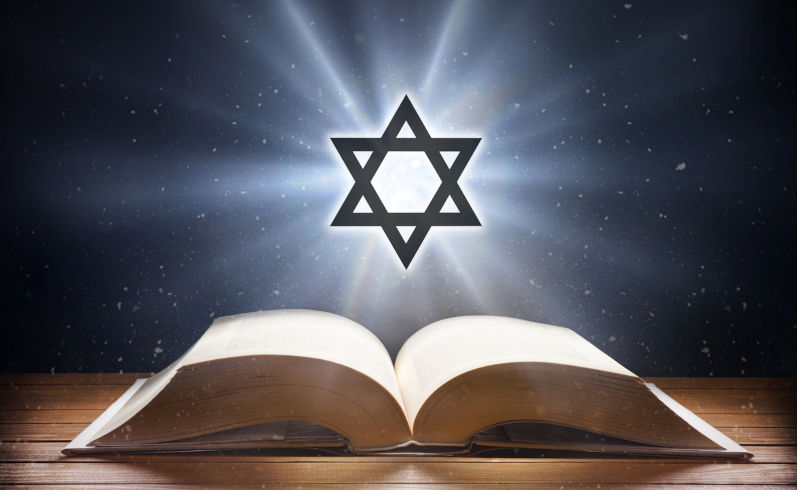Michael Gawenda, former editor of The Age and Walkley award-winning journalist, published his memoir ‘My Life as a Jew’ last year. Actually, it’s only part memoir, since much of it is reserved for polemics against Jews and Gentiles who are critical of Israel. The rest traces his life journey from an anti-Zionist Bundist youth to his current “familial” love for Israel and the Jewish people.
Such a transition is, in general terms, a familiar enough road: if we live long enough our friends die off, younger people are no longer interested in us, and we are increasingly dependent on and absorbed by family. In political terms, as Gawenda makes clear, we should transit from universalist idealism to atavistic tribalism as we age. He thinks this applies to Israel’s Jewish supporters as well; and “universalist Jews are anxious Jews,” he concludes, as if this clinches the matter. Well, hello – anyone working for a better world is bound to be anxious – that goes with the territory.
Gawenda’s increasing love for Israel and Jewishness is stoked by visits to meet up with family and friends there. His only son has ‘made Aliyah,’ and is a devoted student of Judaism. Gawenda is not observant, so the love stems, he thinks, from a deep identification with Jewish history, “peoplehood” and “community.” Fellow Australians may not share the depth of his feeling, but this is a very common trajectory. Most white Australian migrants harbour some sentiments about what Anglo-Australians always called “home.” My own adult children made a pilgrimage to an ancestral grave in Scotland, bringing me back a cherished kilt in the clan tartan: part of this syndrome. My clan also has an interesting history, including war, persecution and forced relocation, though it has totally failed to match the Jewish preservation of Jewish culture, ethnicity and religion. Gawenda’s identification as a Jew is doubtless strengthened by the long shadow of the holocaust, and by what he sees as the miracle of modern Israel’s creation, and by anti-semitism, but I’m still making the point that love of clan, tribe, people and home country is not a feeling entirely confined to Jews.
Other victims, not acknowledged by Gawenda, share in the lack of love: Irish Catholics suffered severe discrimination for decades; even Irish jokes still offend. There is also that other large minority group called women. Gawenda is concerned that rising anti-Semitism causes some Jews to feel unsafe ‘even in Australia.’ Join the Australian club, where one woman a week on average is killed by a male misogynist; where insults, language and jokes about women still prevail, along with a host of inequities never suffered by Jewish or other men.
But returning to the text: when he’s not meditating about his Jewishness there is this other Gawenda homunculus which rears its angry head. This furious Gawenda takes aim at several prominent anti-Zionists or critics of Israel, with the Jews amongst them coming first in his sights. These include two women I’ve long admired for many other reasons: his former friend, Melbourne publisher Louise Adler, and the late great political scientist Hannah Arendt. After dealing unkindly with both, former Foreign Affairs Minister Bob Carr becomes his prime target. Gawenda announces ominously that he’s “prepared to do a little psychoanalysis on Carr;” embarking on a dozen vitriolic pages quite irrelevant to the theme of Jewish identity. Carr was a founder of the parliamentary Friends of Israel in 1977, making his heresy rankle all the more now that he’s one of those who “is very angry and nasty when he writes about Israel.”
But Gawenda’s vexed thoughts on the Israeli Lobby are certainly relevant, affecting his life as a journalist as well his familial feelings. On one hand he scoffs at any suggestion that this Lobby dictates Australian foreign policy : “… bullshit, but powerful bullshit, because it is rooted in ancient prejudice.” But, blood libels aside, there is a large grey area between dictating and influencing policy. Gawenda recognises that the Lobby is now well funded and staffed by professionals, having written a biography of Mark Liebler, a most devoted longterm Lobby activist. On the other hand, the furious Gawenda homunculus erupts in an attack on journalist John Lyons, who unlike Gawenda has lived in Israel, even becoming acquainted with Palestinians: a group notably absent from Gawenda’s Israeli musings. Lyons, according to Gawenda, is guilty of many things but mostly of his thesis that the Israeli Lobby and its many components has succeeded “in making cowards of Australian journalists and editors … too afraid, too cowed by threats, to reveal the true horrors of Palestinian suffering in the hands of Israel.”
Events have somewhat overtaken the situation since Gawenda’s book was published. Many Australians are now able to tune into the Al Jazeera channel where, for the first time, we can view a genocide in daily action. The denial of food and water to a whole population surely can’t be anything other than genocidal in intent, and the suffering of Gaza is now witnessed at length, in the face of Murdoch media glosses and those other Australian outlets missing in action. Way back in 2010, the late John Pilger observed that the Murdochracy not only promotes war and jingoism, but “flies false flags for Israel … the result is apologetic reporting of murderous actions.”
Pilger also wrote that Murdoch targets and intimidates both the ABC and the BBC. The ABC is a soft target, as demonstrated in the latest revelation regarding the Israeli Lobby. The well-orchestrated efforts of one of its component are provided in detail by the fortuitous leak of a WhatsApp campaign by a group of 159 “Lawyers for Israel,” crowned with success. Not content with complaints about media content, the pitiless campaigners don’t rest until they have their target removed and sacked from their livelihood and careers. All perfectly legal of course, but criticism of such merciless attacks can’t be brushed off as mere Jew-hating and blood libel.
Finally, Gawenda argues that in spite of the changes traced in his own position, he remains a staunch social democrat. But under any definition social democrats stand for equality, non-discrimination, social justice and freedom from oppression. How long can he cling to this honourable label while demonising all critics of his beloved Israel? If universalists dream an impossible dream, so too does Gawenda with his own dream of a cosy and familial Israel.
Former journalist and retired senior lecturer in international politics, UTS. Secretary of Northern Beaches Committee for Palestine and member of the Pittwater Knitting Nannas, activists for renewable energy.

